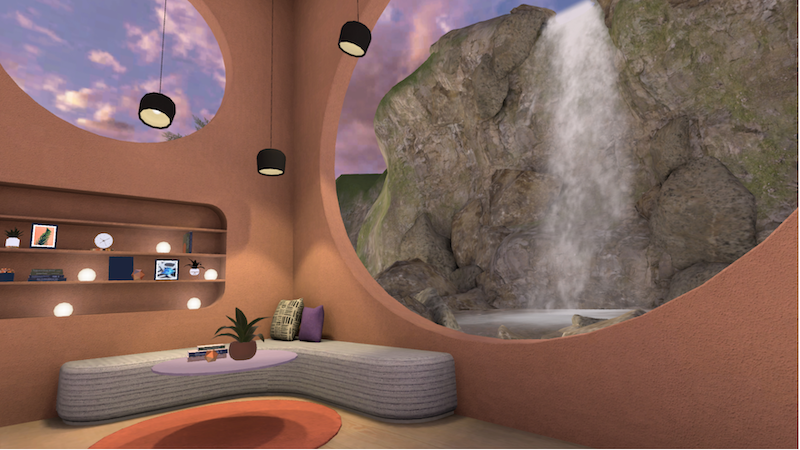By now you’ve heard of the metaverse, and if you’re like me, you think, “Oh, that platform Mark Zuckerberg is trying to add to Facebook — Meta.”
The metaverse, however, is not just one place. There are multiple metaverse platforms that will offer retailers and interior designers opportunities to not only showcase products and spaces in 3D, but also allow shoppers and clients to connect and experience those spaces. You can even build your own.
For more on how to use a metaverse in your business, check out this sidebar to our cover story (see page 30) where Leslie Carothers, founder of Savour Partnership shares her thoughts on how important the metaverse will become for home furnishings retailers and designers. Getting in front of this technology is important as virtual and augmented
realities become ever more important to the consumer.
Here, we’ll explore two metaverse platforms that can take your business to the next level.
Spatial.io
Spatial.io is dedicated to helping creators and brands build their own spaces in the metaverse to share culture together. Spatial empowers its users to leverage their beautiful spaces to share eye-popping content, build a tight-knit community and drive meaningful sales of their creative works and products.
According to the company, it sees the metaverse as an opportunity to empower creators to build their livelihood around the work. “We see the metaverse as an opportunity for creators, their supporters and their fans to interact more closely than ever before. And the metaverse should be open and interoperable, where users can connect their spaces easily to other platforms, and seamlessly bring content from one to another, all enabled by
the blockchain.”
In Spatial, you can build a beautifully appointed realistic room or create an event and allow clients, potential clients and more to interact and shop in a virtual reality space designed to offer a 3D experience.
Pricing and Possibilities in Spatial
Spatial offers a free option along with tiered access depending on your goals within the metaverse platform. With the free version, designed for creators looking to host
exhibitions, meetups and live events, you can create a public hosting space.
You can upload content in one click (images, videos and 3D files) and you can host up to 50 people in a room. You can upload your own 3D environment or buy one on the platform. Spatial works with MetaMask, Google, Apple and Microsoft logins. You can create a lifelike 3D avatar from a selfie, share your screen into the space and create sticky notes to leave messages in the space. This tier of the platform works with MetaMask, Google Drive and OneDrive file upload integration.
For $25 a month ($20 a month when billed annually), you can upgrade to Spatial+, designed for creators looking to host more curated and controlled experiences.
Spatial+ gives you all of the bells and whistles in the free version and includes some upgrades as well, including such features as token gating for access to spaces and host tools that allow view-only mode and muting. It also allows for designating hosts and removing participants, as well as live translation.
If you’re looking to host a special event or create a unique experience, staff is on hand to answer questions and guide you through the features you’ll need.
Decentraland.org
Decentraland is a 3D virtual world browser-based platform. Users may buy virtual plots of land in the platform as NFTs (non-fungible tokens) via the MANA cryptocurrency, which uses the Ethereum blockchain. It was opened to the public in February 2020, and is overseen by the nonprofit Decentraland Foundation.
While a more animated metaverse, Decentraland comes with a large audience already built in.
That audience is large enough that brands such as Adidas and Sotheby’s can be found on the platform. Sotheby’s held its first metaverse art auction on the platform. Decentraland also hosted a metaverse fashion week in March 2022, where such brands as Dolce & Gabbana, Tommy Hilfiger and Elie Saab participated.
In Decentraland, users can buy parcels of digital land, which can cost between $6,000 and $100,000.
While Decentraland is considered “clunky” by some, as younger generations raised on gaming begin showcasing their spending power, metaverse platforms such as these will continue to evolve to deliver a better virtual experience for consumers and brands alike.



